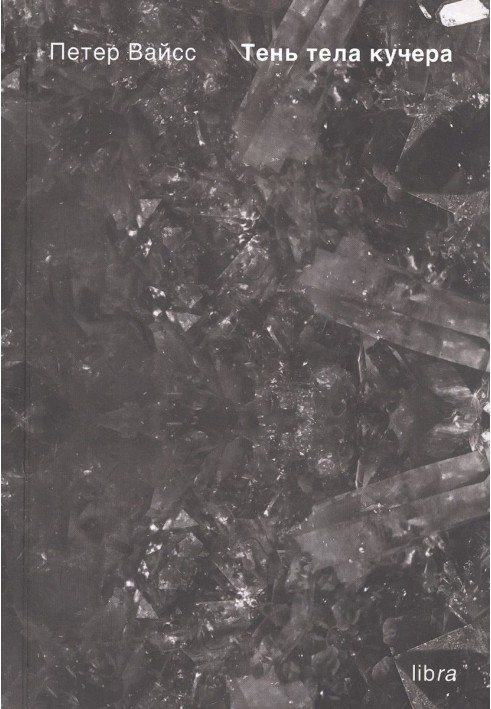Coachman's body shadow
 Instant download
Instant download
after payment (24/7)
 Wide range of formats
Wide range of formats
(for all gadgets)
 Full book
Full book
(including for Apple and Android)
This is how one Frenchman described hell: “J'al vu l'ombre d'un cocher, qul avec I'ombre d'une brosse frottait I'ombre d'un carross.”
Brothers Karamazov
Dostoevsky quotes Paul Scarron's (1610-1660) parody poem The Aeneid Inside Out (1652): “I saw the shadow of a coachman, who with the shadow of a brush cleaned the shadow of the carriage.”
Peter Weiss Weiss, 1916-1982) - German-Swedish writer, world-famous playwright, artist, and film director. Weiss comes from a Swiss-Hungarian family. The writer's mother, Frida Hummel, shone in the plays of Max Reinhardt, and his father, Jeno Weiss, served at the front as a senior lieutenant in the imperial and royal army. After 1918, the family moved from Potsdam to Bremen, where the writer's father converted from Judaism to Christianity and the successful textile factory Hoppe, Weiss & Co was founded. Jeno Weiss never received German citizenship, but he ardently supported the National Socialists for their contempt for communism. Despite his passion for literature, Peter Weiss followed in his father's footsteps. Due to the impossibility of hiding their Jewish roots, the family moved to London in 1935. Weiss Jr. is interested in photography and creates his first paintings. In 1936 - the next stage of emigration - Czechoslovakia. On the advice of Herman Hesse, Weiss enters the Academy of Arts, but in 1938 the family is forced to go to Sweden, where Jeno Weiss becomes the head of the SILFA textile factory, and young Peter earns a living by drawing patterns for fabrics. Weiss's first book, a collection of prose poems From Island to Island (Från ö till ö, 1947), was published in Sweden. Since 1952, Weiss has taught film theory at Stockholm University. Weiss's most famous works were the dramas The Persecution and Murder of Jean Paul Marat, presented by the theater troupe of the hospital in Charenton under the direction of Mr. de Sade, Inquiry and Hölderlin, a dramatization of Franz Kafka's novel The Trial, and the novel The Aesthetics of Resistance. The micro-novel The Shadow of the Coachman's Body, perhaps the only work of German structuralism, was published by Suhrkamp in 1960.
Data sheet
- Name of the Author
- Петер Вайсс
- Language
- Russian
- Translator
- Александр Олегович Филиппов-Чехов












